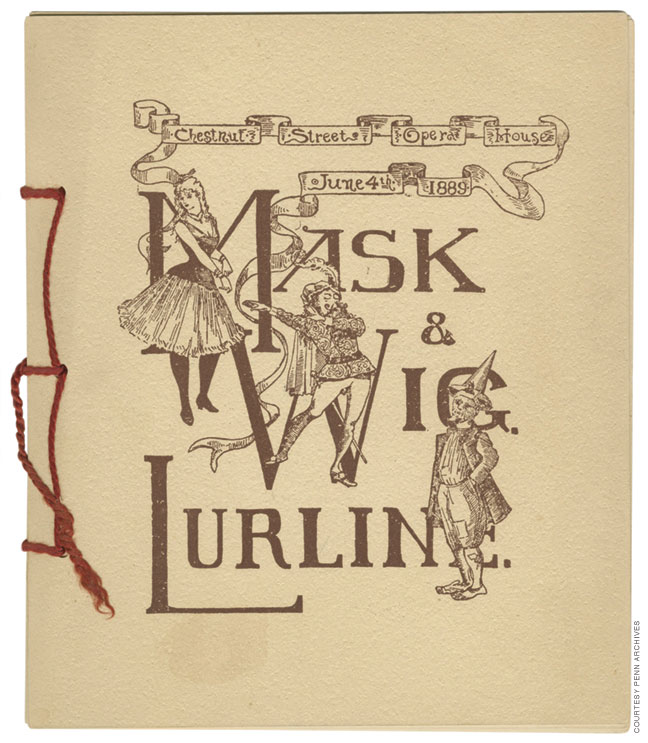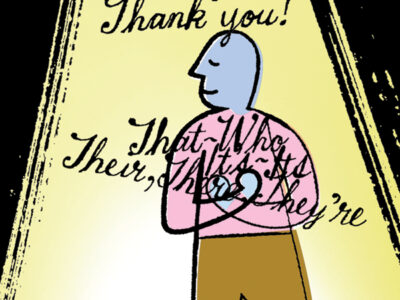
On June 4, 1889, some 1,530 people packed Philadelphia’s Chestnut Street Opera House, apparently unsure of what they were about to see. A new University group called the Mask and Wig Dramatic Club had recently formed and, after five months of rehearsals, its Penn undergraduate performers were set to put on a musical burlesque production called Lurline to a sold-out crowd of the city’s theatergoing society.
“Perhaps outside of the faithful and indulgent members of the families of the participants, the rest of the audience attended with a sense of reserved curiosity and wondered whether they, instead, were to be the ones sold out,” William A. Wiedersheim II wrote in his book Some Fifty Odd Years of The Mask and Wig Club, 1889–1941. “But such was not the case. ‘Lurline’ was a tremendous success, enthusiastically received and richly praised.”
That “tremendous success” has continued through Depression, wars, and cultural upheaval for Mask and Wig, which after 133 years as a male-only institution will welcome all genders starting next fall [“Gazetteer,” this issue].
It’s unlikely that Clayton Fotteral McMichael C1891 would have predicted such longevity when he created the club with a few fellow Penn students and hatched a plan to create burlesque shows, which were “quite popular in that era,” according to the Mask and Wig’s website. “The overblown characterizations, loose plotting, musical interludes, and parody of high art made the style perfect for a group of young, well-educated, amateur men, especially since the drag tradition came ‘built-in.’”
Using Henry Byron’s The Nymphs of the Lurleyburg as inspiration, McMichael arranged Lurline in four acts. His father, a newspaper editor, helped to cover the expenses and a profit of $743.23 was made on the first show, “far in excess of the fondest hopes and dreams of those responsible for the venture,” wrote Wiedersheim, who credited McMichael as “the organizer, the creator, and the source of inspiration” who kept Mask and Wig going through its next annual production, Ben Franklin, Jr., and beyond.
When he died young in 1907, a Philadelphia Inquirer obituary called McMichael, then Penn’s acting treasurer as well as the president and founder of Mask and Wig, “one of the most popular men the University has ever turned out.” —DZ




